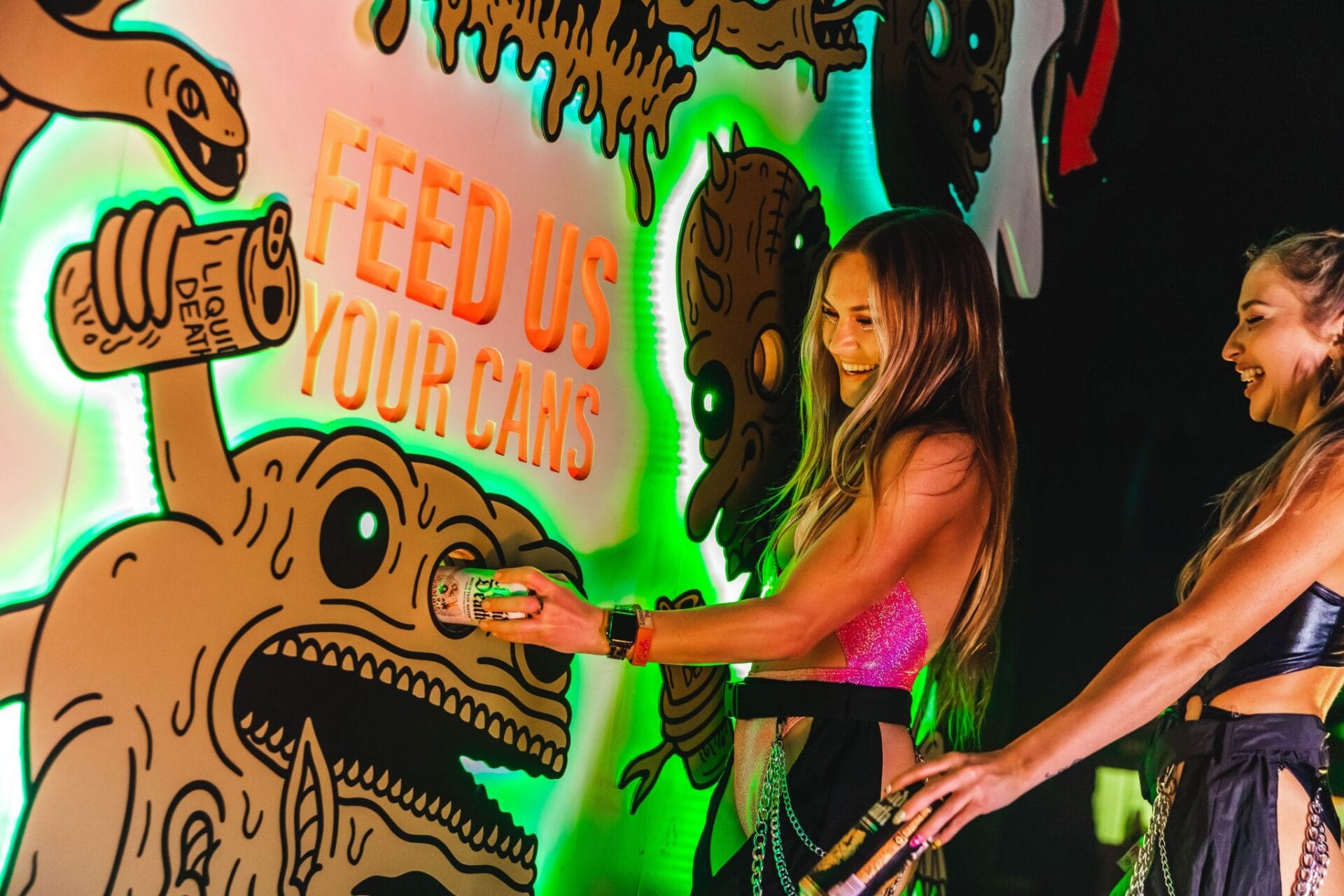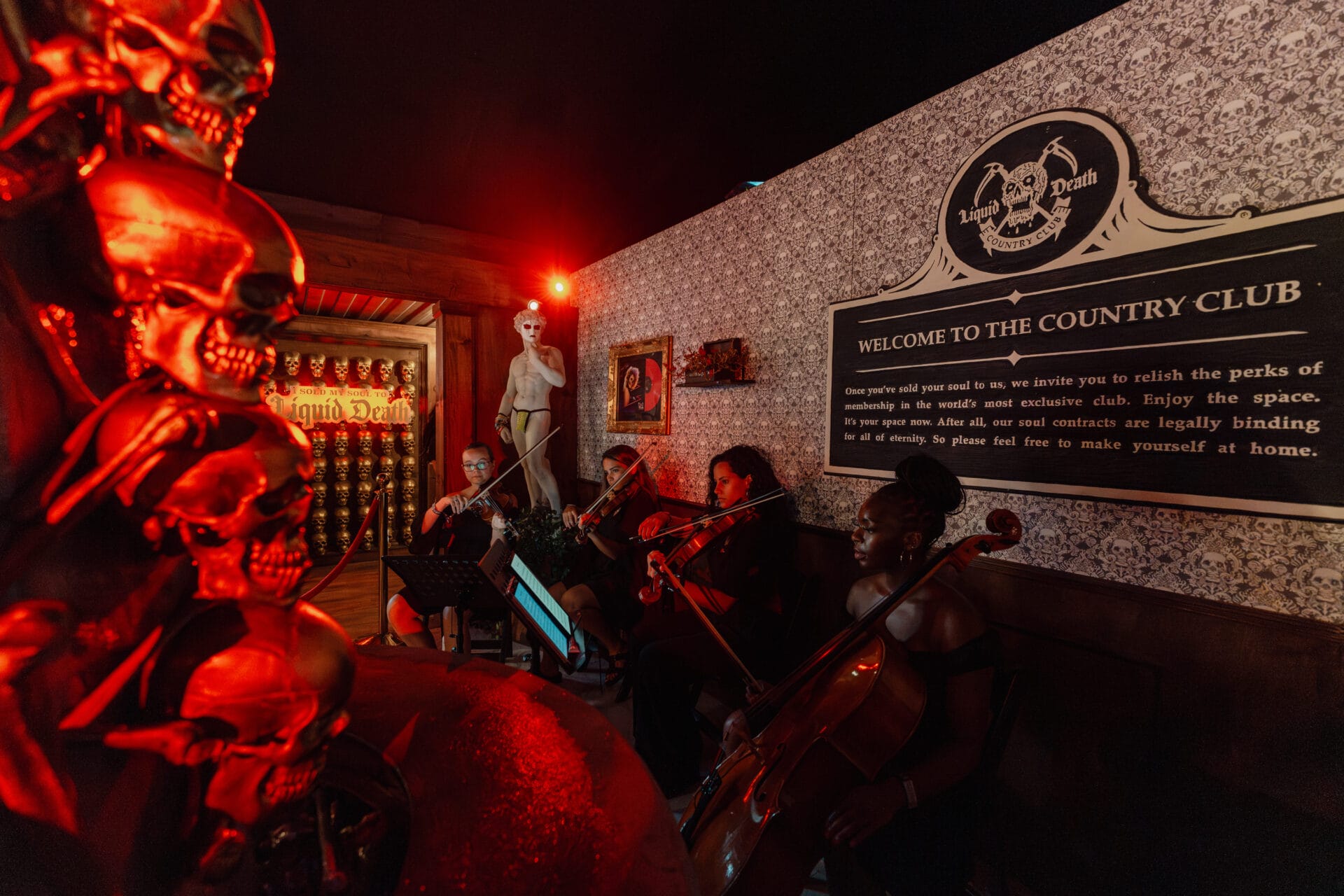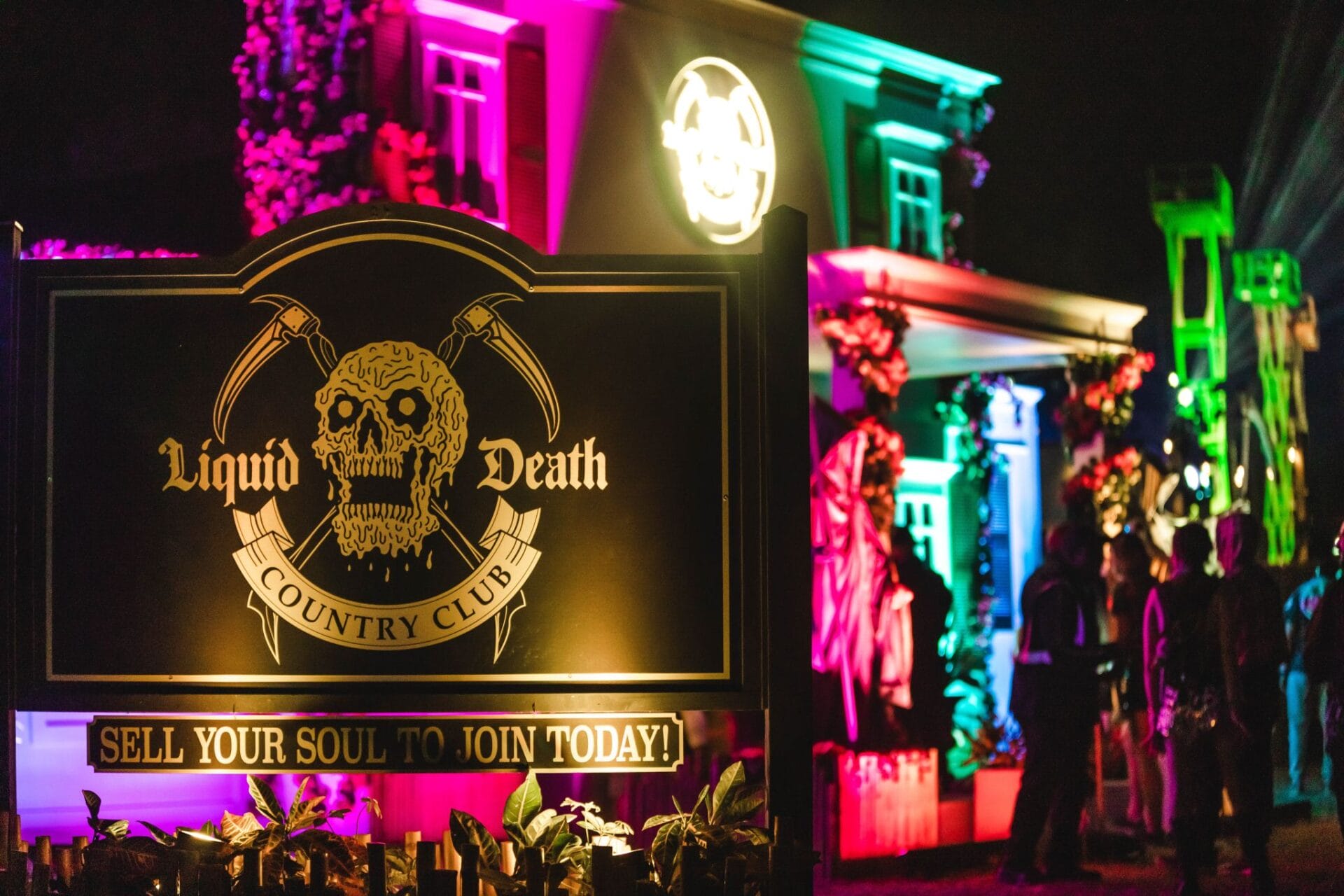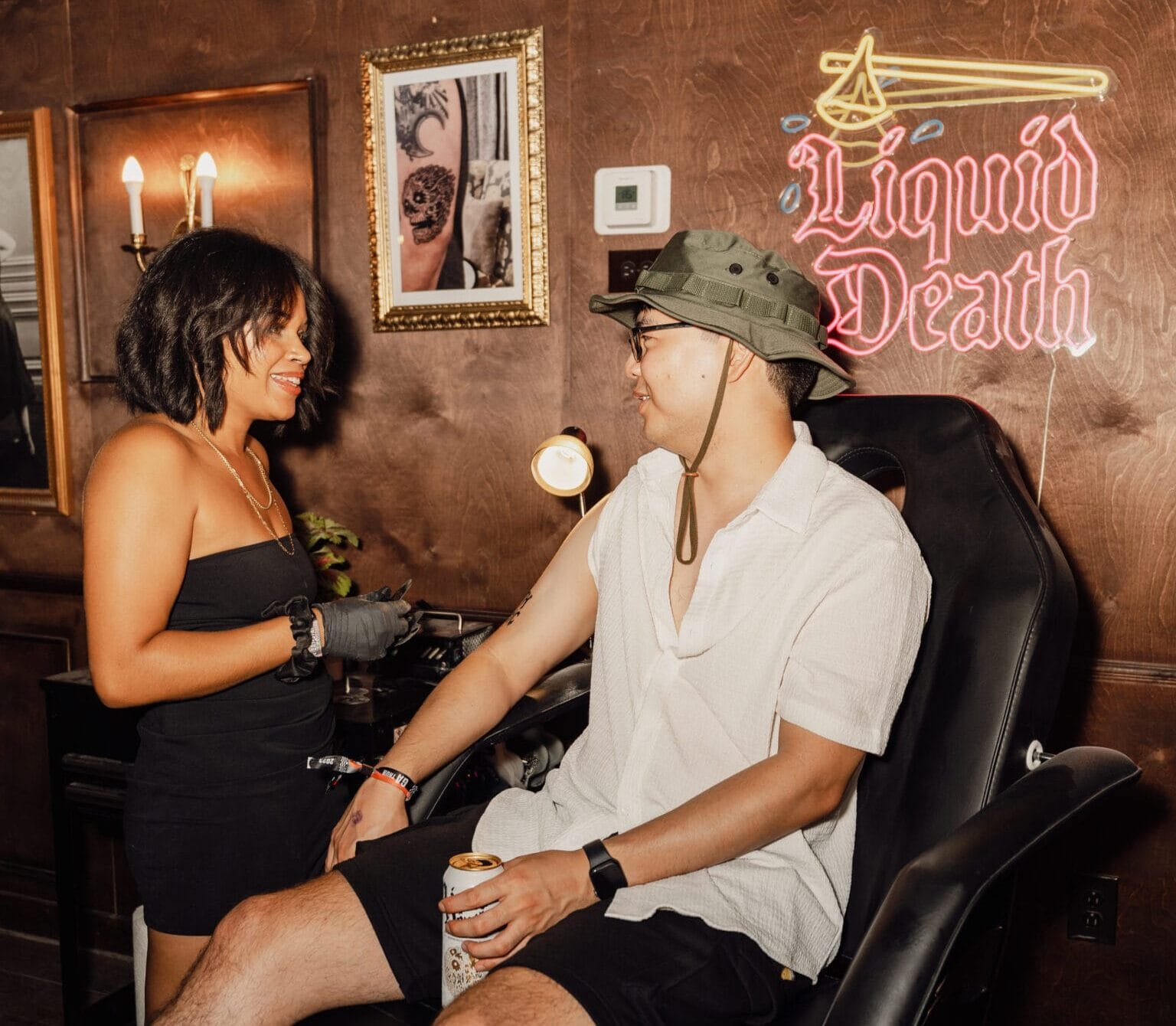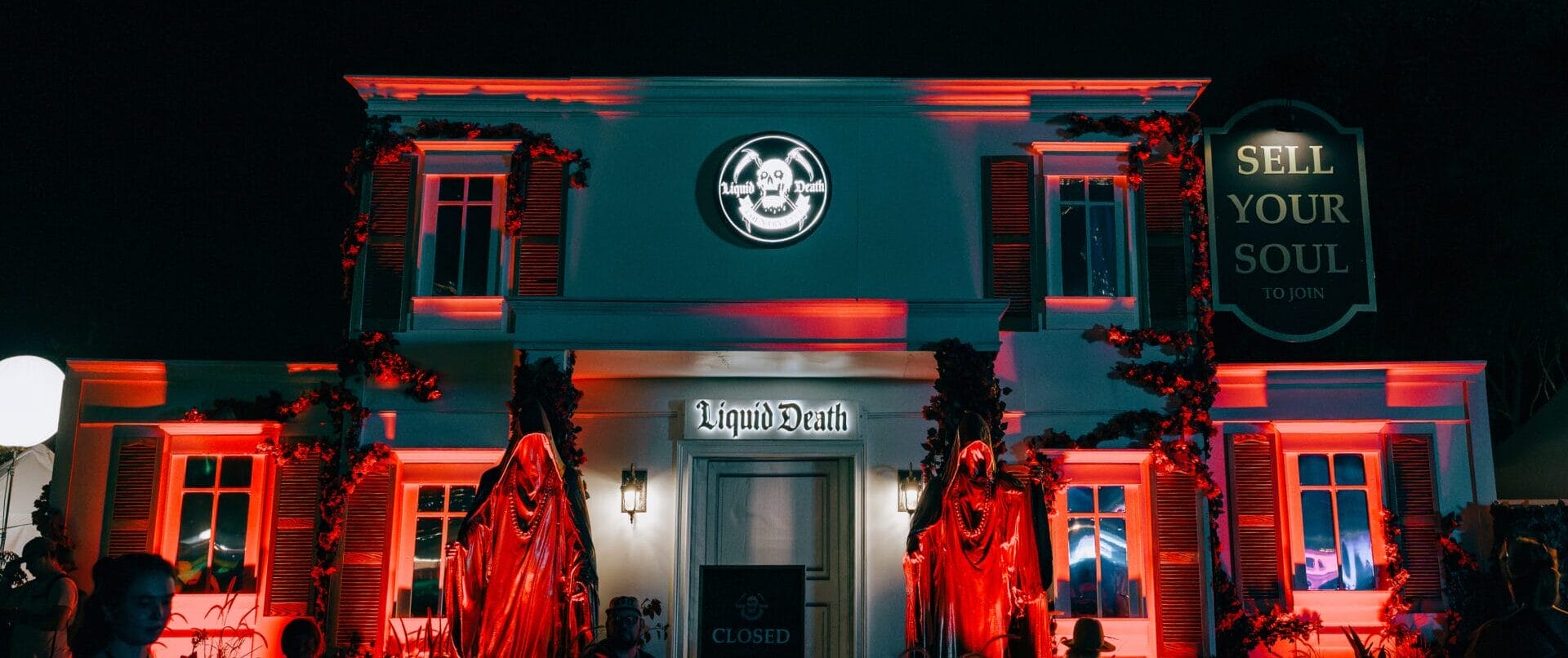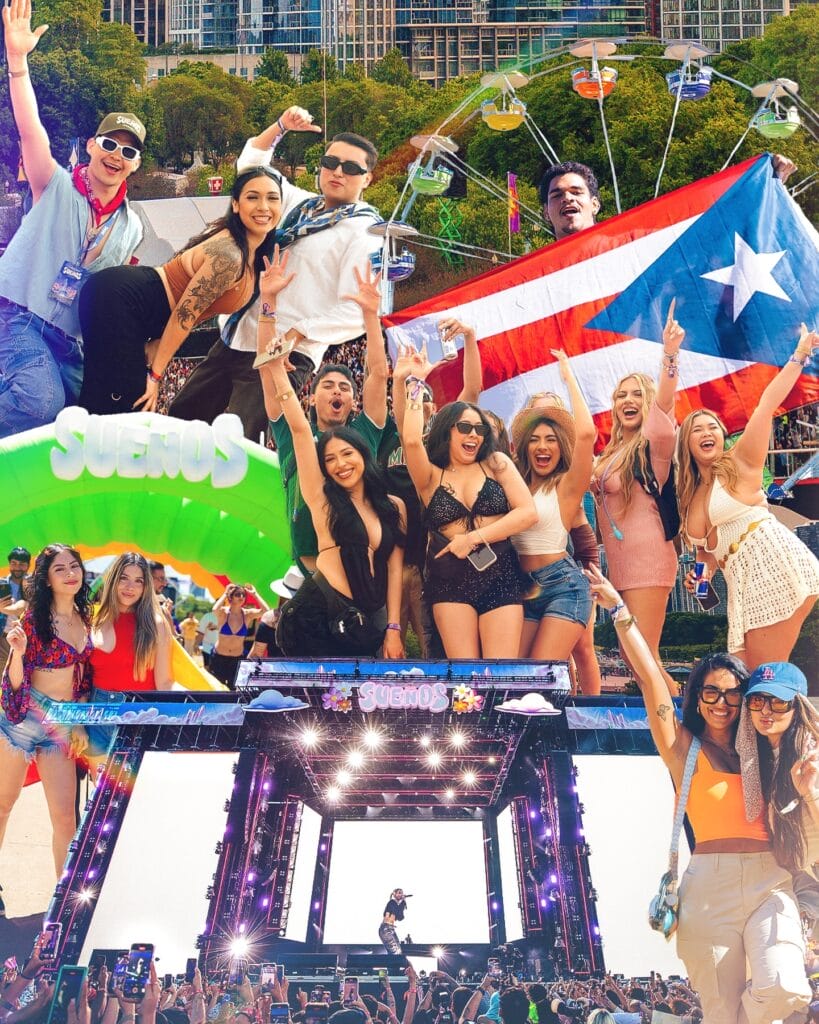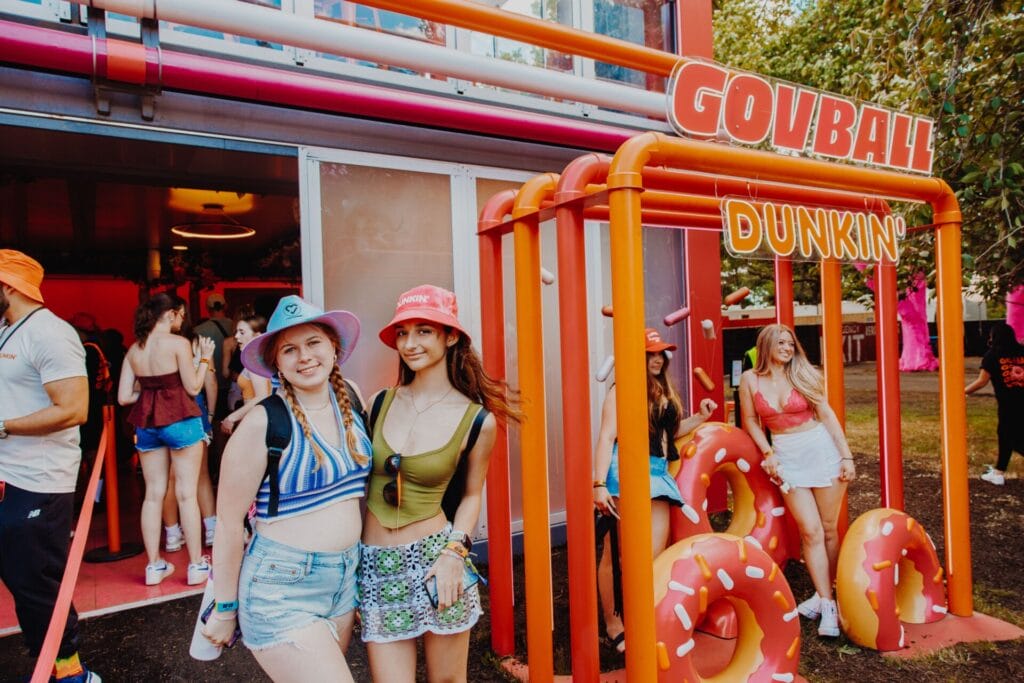How Liquid Death’s Marketing Rebellion Redefined Water

Live Nation’s Russell Wallach sat down with Andy Pearson, one of Liquid Death’s marketing mavericks, to discuss why embracing the absurd helped build a billion-dollar brand and how they’re keeping the planet hydrated, one outrageous campaign at a time.
Liquid Death isn’t just water—it’s a cultural phenomenon. Since its 2017 launch, the water marketing unicorn has turned canned water into the coolest drink to sip on with its imaginative and irreverent marketing – and becoming a billion-dollar brand in just seven short years.
In 2021, Live Nation teamed up with Liquid Death to bring fans more sustainable water options at our venues and festivals in the US and UK. From the award-winning “Country Club,” where fans only need to “sell their souls” for entry, to becoming the first headline partner of the UK’s famous rock festival, Download, live music has served as the ultimate playground for the Liquid Death brand to come to life.
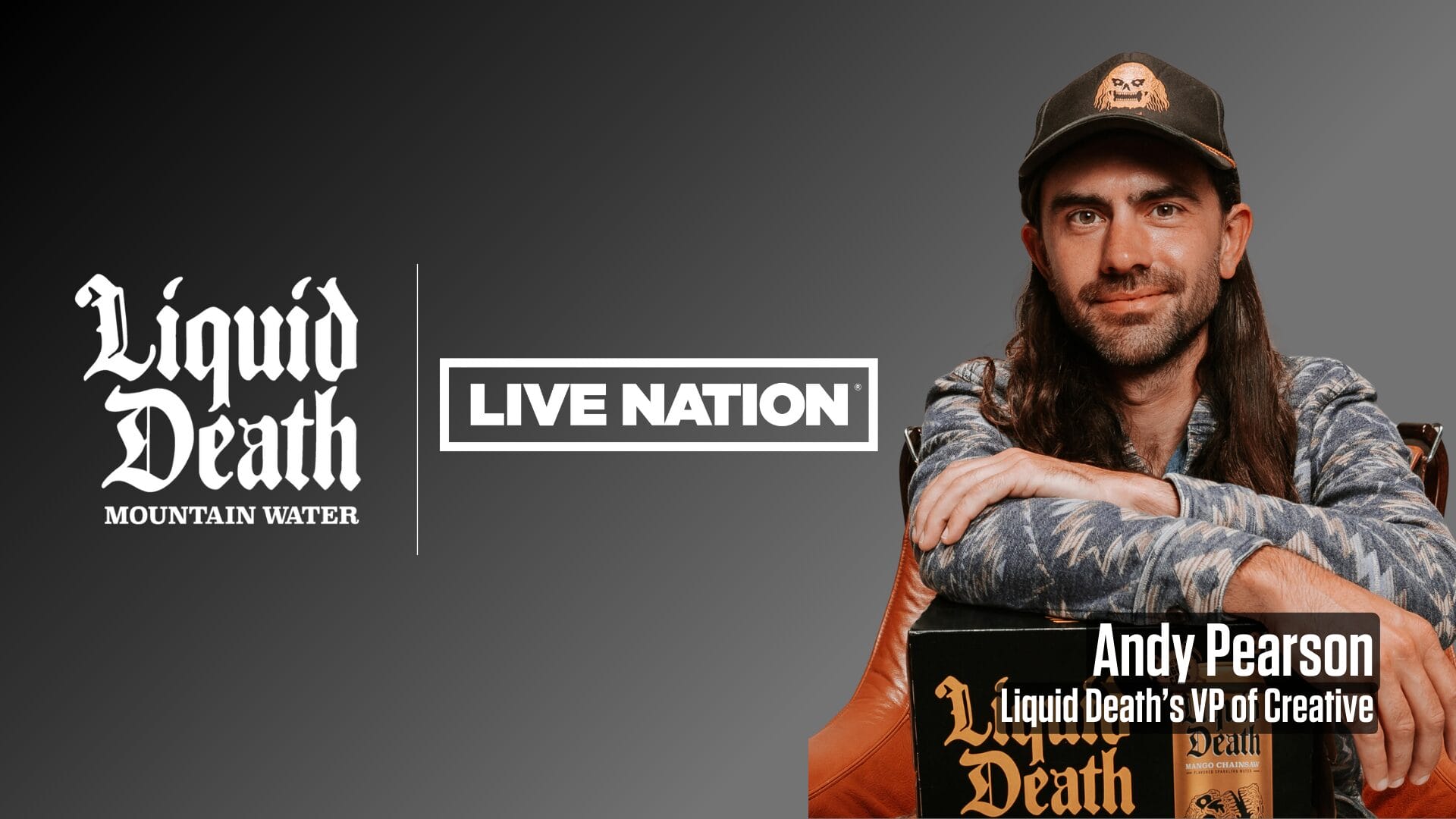
Russell Wallach (RW): You’ve described Liquid Death as an entertainment company first with a water brand attached, aiming to make people laugh through creative storytelling and memorable experiences rather than just focusing on traditional marketing. With innovative partnerships alongside brands like e.l.f. and Netflix, how do you and your team continue to find creative inspiration?
Andy Pearson (AP): I think the stuff that makes us laugh the most is dismantling the marketing machine. We look at any given situation and deconstruct it. Rather than asking “how should we use this to market our product?” we ask “how do other people use this to market their product?” and then we use that as an entry into making something fresh that can be funny on a variety of levels. In that way, I guess it’s kind of like molecular gastronomy. It’s not just delicious food, it’s also often a commentary or reaction to food itself. (Is this getting too heady? OK then. We also just try to make dumb jokes that will make other people in the room laugh.)

RW: Liquid Death’s unique branding made canned water an instant hit with music fans and a staple at venues and festivals across the US and UK. We’ve brought the award-winning Country Club to major festivals where fans ‘sell their souls’ to enter. Liquid Death recently signed on as the first-ever name-in-title sponsor of Download, the UK’s premier rock festival. How has live music’s creativity influenced your brand’s narrative and marketing strategy? Has it enhanced your connection with fans?
AP: Music is everything to us. A number of people here are either touring musicians or former musicians themselves. And we’ve been introduced to so many artists and fans simply by being around a green room or being available at their favorite venue or festival. Our goal with our marketing is to be the best thing someone sees that day. It’s probably hard to do for someone when they’re seeing their favorite artist, but if we can be part of enhancing that experience, that’s a pretty cool thing to be a part of.
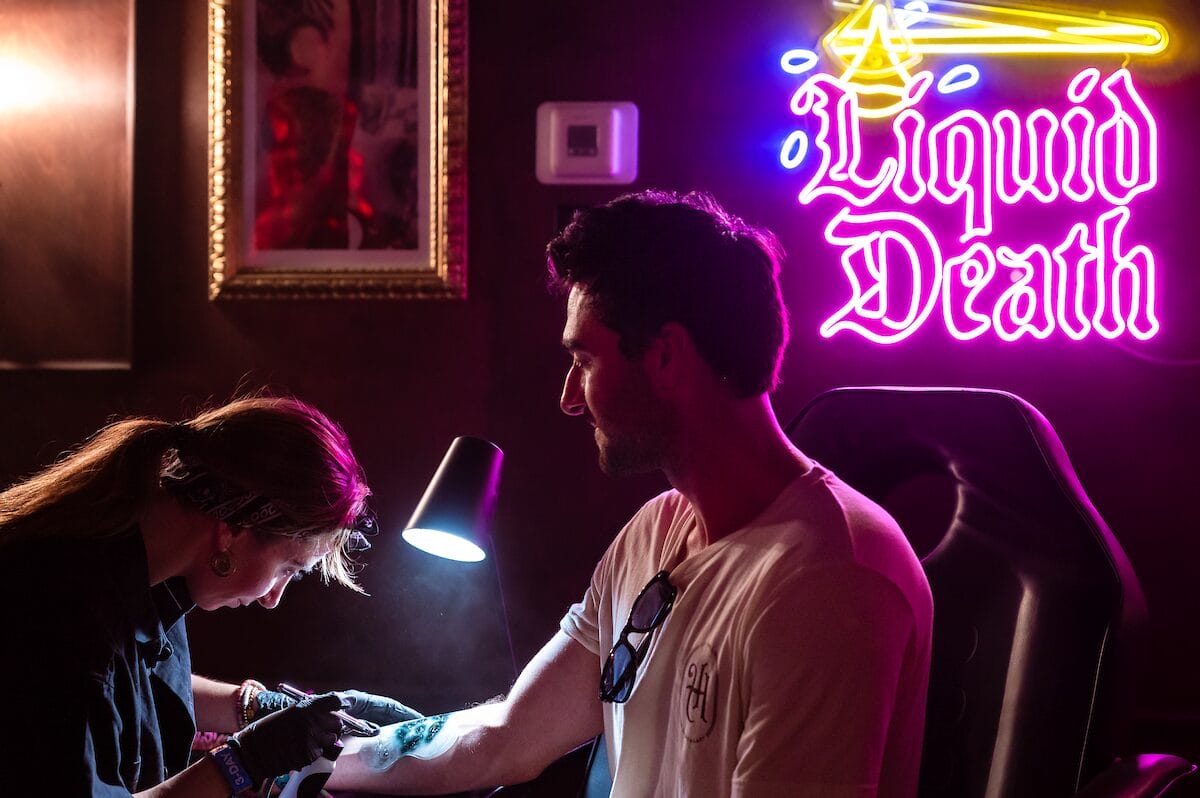
RW: Liquid Death has changed how people think about water, marketing, plastic, and creative effectiveness. As the brand continues to innovate, where do you envision Liquid Death heading in the future, and what excites you most about its trajectory?
AP: We’ve grown so much in the past few years, which is really exciting because we now have a stage to change how people think about all that stuff you’ve mentioned and to make people laugh. Most big brands are simply too scared to be funny–it’s too risky for them–but that’s our competitive edge. The worst thing someone can feel about you is nothing. We like to think of it as a platform like SNL, where we can skewer different parts of pop culture and invite new celebs and brands and fans in on it each time. On top of that, we have big aspirations to find more ways to use humor that no one’s ever tried. I like to think of it as “3D comedy.” It’s not just hilarious videos or skits. As a real brand with real products, we have all these other things at our disposal. The Country Club experience at festivals is a great example of that.
RW: Your marketing isn’t just creative; it serves a broader purpose for the planet. Through our partnership, music fans are moving away from single-use plastics at concert venues and music festivals. What’s one thing everyone should know about the environmental benefits of switching from plastic water bottles to cans, and why was water such a critical frontier for change?
AP: Only around 5% of plastic gets recycled. It’s just not profitable to recycle, so the remainder winds up in landfills or oceans. At our current rate of consumption, plastics will outweigh fish in the ocean pound for pound by the year 2050. By comparison, aluminum is infinitely recyclable, and nearly 75% of all aluminum ever produced is still in use today.
Our #DeathToPlastic mission is extremely important to us and to our fans. A portion of our proceeds goes to nonprofits that help kill plastic pollution and bring clean drinking water to those in need.
Beyond sustainability, aluminum lets us create a healthy beverage that’s just as fun to drink as all the bad stuff for you out there. We’ve been conditioned by beer, soda, and energy drinks to associate “fun” with canned beverages.

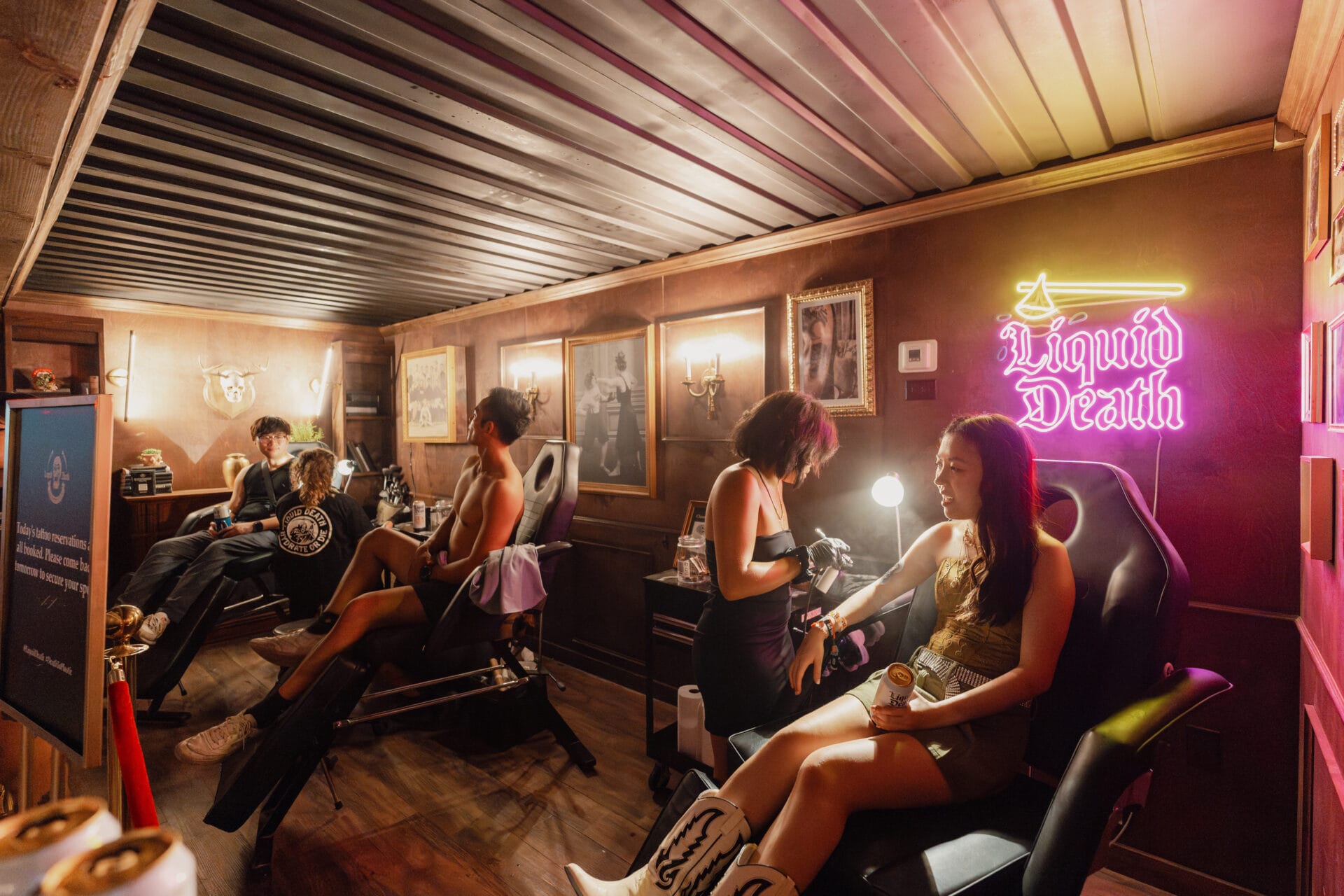
RW: Your brand is rewriting the playbook for marketing across industries. What advice would you give aspiring creatives trying to make their mark?
AP: Don’t copy what’s been successful already. The bad news is, there can’t be another Liquid Death. It’s already been done. The good news is there can be a new something-else. Start by thinking dumb. I can’t tell you how many people told us this was a terrible idea and that no one would ever drink water out of a can or drink anything with “death” on it. If you can free yourself up to think wrong, you’ll trick your brain into finding a new space that no one has bothered to consider before. Remember: Everything is dumb until it isn’t.

